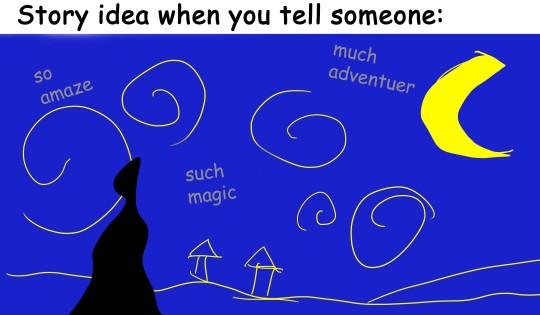Don't wanna be here? Send us removal request.
Text
how to properly structure a query letter!*
Dear [Agent],
[An optional brief introduction, no longer than 2 - 3 sentences, perhaps where you elaborate on the #ownvoices of your manuscript, or pointing out certain things in your manuscript that the agent asks for. I reiterate that this paragraph is optional. Unless you have a very specific reason to be querying this agent—for instance, if they tweeted an MSWL for a heist novel and you’re querying a heist novel—there is no relevance, so don’t include this paragraph.]
[The first paragraph of your summary introduces the world, the main character, and their Normal. For instance, Cynthia lives in the times of a pandemic and works to continue living in their new normal. Every day, Cynthia chooses to get up and keep living and making the most of their situation while trying to find something to do to be useful.]
[The second paragraph of your summary introduces the plot. To continue with the above idea, Cynthia has been tasked with trying to find a cure to coronavirus, but all they have to work with in their home is duct tape, tangerines, Tylenol, and a never-give-up attitude.]
[The third paragraph introduces stakes, aka what will happen if Cynthia doesn’t discover a cure with the resources they have at home. Luckily for them, however, a woman named Jane they had a one night stand with needs a place to crash after she was evicted. Cynthia agrees to let her stay as their roommate, especially because Jane brings with her the missing ingredient to the cure for coronavirus, a magic bean she stole from a giant–but there’s only one magic bean. If Cynthia and Jane can’t find a way to make more beans, they might be sent to the realm of giants forever.]
[The closing paragraph goes like this: Complete at 89,000 words, THE MAGIC BEAN is an Adult contemporary fantasy with potential for a companion novel. I believe it will appeal to fans of Erin Morgenstern and Naomi Novik. Briefly explain who you are and share what you’re comfortable with about yourself—I say I’m 26, headed to grad school for archiving, and that the book is #ownvoices for genderqueer representation. Also mention if you have any connection to the publishing industry. I mention who I was previously represented by, why we amicably parted ways, and that I’ve mentored in many writing contests.]
[Final closure: Thank you for your time and consideration. I look forward to hearing from you!]
[Best,]
[My name]
[My phone number and, though optional, my twitter handle]
*i’ve been in the publishing industry for nine years now, have mentored many authors who went on to be published by the Big 5, and worked in writing contests to help writers, not only with their manuscript, but with their pitch and query letter and comps etc. i know what i’m about 😉
6K notes
·
View notes
Text
The secret to writing relatable characters is to picture yourself in their circumstances, carefully fix in your mind exactly what information would be available to you in that situation, and figure out what the worst possible decision you can imagine yourself honestly thinking seemed like a good idea at the time is.
41K notes
·
View notes
Text
Character development doesn't refer to character improvement in a moral or ethical respect. It refers to broadening the audience's understanding of that character, giving the character a deeper background, clearer motivations, a unique voice.
Developing a character is about making them seem more like a real person, and real people are flawed. Real people make mistakes. They repeat mistakes. They do things other people don't agree with. Real people are more than just 'good' or 'bad' and character development is about showing all of those other aspects of them.
Their interests and hobbies. The song that gets stuck in their head. The fact that their vacuum broke 3 months ago and they haven't gotten it fixed yet. All of those details help build out the character and develop them more.
And yes, characters change as stories progress but that doesn't mean they get 'better' in a strict moral sense. It means that their experiences change the way they interact in the world you've written for them. Just like real people do.
19K notes
·
View notes
Note
What do you think all writers have in common?
an overwhelming and insatiable longing for something more than this
48K notes
·
View notes
Quote
How about, in Marxist terms, “the proletariat”? Where are they in SF? Where are the poor, the people who work hard and go to bed hungry? Are they ever persons, in SF? No. They appear as vast anonymous masses fleeing from giant slime-globules from the Chicago sewers, or dying off by the billion from pollution or radiation, or as faceless armies being led to battle by generals and statesmen. In sword and sorcery they behave like the walk-on parts in a high school performance of The Chocolate Prince. Now and then there’s a busty lass amongst them who is honored by the attentions of the Captain of the Supreme Terran Command, or in a space-ship crew there’s a quaint old cook, with a Scots or Swedish accent, representing the Wisdom of the Common Folk. The people, in SF, are not people. They are masses, existing for one purpose: to be led by their superiors.
Ursula K. Le Guin, American SF and the Other (via probablyasocialecologist)
1K notes
·
View notes
Quote
For example: A writer sets out to write science fiction but isn’t familiar with the genre, hasn’t read what’s been written. This is a fairly common situation, because science fiction is known to sell well but, as a subliterary genre, is not supposed to be worth study—what’s to learn? It doesn’t occur to the novice that a genre is a genre because it has a field and focus of its own; its appropriate and particular tools, rules, and techniques for handling the material; its traditions; and its experienced, appreciative readers—that it is, in fact, a literature. Ignoring all this, our novice is just about to reinvent the wheel, the space ship, the space alien, and the mad scientist, with cries of innocent wonder. The cries will not be echoed by the readers. Readers familiar with that genre have met the space ship, the alien, and the mad scientist before. They know more about them than the writer does. In the same way, critics who set out to talk about a fantasy novel without having read any fantasy since they were eight, and in ignorance of the history and extensive theory of fantasy literature, will make fools of themselves because they don’t know how to read the book. They have no contextual information to tell them what its tradition is, where it’s coming from, what it’s trying to do, what it does. This was liberally proved when the first Harry Potter book came out and a lot of literary reviewers ran around shrieking about the incredible originality of the book. This originality was an artifact of the reviewers’ blank ignorance of its genres (children’s fantasy and the British boarding-school story), plus the fact that they hadn’t read a fantasy since they were eight. It was pitiful. It was like watching some TV gourmet chef eat a piece of buttered toast and squeal, ‘But this is delicious! Unheard of! Where has it been all my life?’
Ursula K. Le Guin, Genre: A Word Only a Frenchman Could Love (via queenofattolia)
37K notes
·
View notes
Text
It’s never about the bread.
One of my old fiction professors had an odd saying: “It’s never about the bread.”
The first time he said it in workshop, we sat there confused, because the story we were critiquing didn’t revolve around carbohydrates of any kind.
He then went on to tell us about a fight he once had with his partner. It was a silly, pointless fight; he’d come home from the grocery store with the wrong kind of bread, and his partner got angry.
The fight, he told us, seemed to be about him getting the wrong bread; it was, after all, all they talked about. But what he realized was that the fight had nothing to do with the bread at all. Instead, they were fighting about something else entirely — an unresolved disagreement they’d had the previous night. (A disagreement they did eventually resolve.)
Hence: “It’s never about the bread.”
Our characters are like this, too. They say and do things that have easy, surface-level motivations, but often enough, there’s a deeper reason behind their actions — emotions, desires, fears, and insecurities.
Knowing what drives your character emotionally helps you add subtext, depth, and consistency to their actions and to your work.
With that in mind, what’s the emotional motivation of your OC? If you don’t know, take a good look at their actions and continually ask “why,” or look into their past to figure out what might be influencing them in the present.
If you’re having trouble and want to spitball ideas back and forth, feel free to get in touch or submit a question to my Tumblr.
Just remember. It’s never about the bread.
Your stories are worth telling. For tips on how to craft meaning, build character-driven plots, and grow as a writer, follow my blog.
3K notes
·
View notes
Text
Throwback thursday to when I was like 12 and I was putting out new writing DAILY...... Like entire Chapters of my then-current wips just, over an afternoon. What the fuck was I on
160K notes
·
View notes
Text
I see a lot of writing advice, particularly about giving characters flaws. The main advice is “everyone has flaws! make sure to give your character flaws or else it’s not realistic!” And after thinking about it… I would like to challenge this.
It essentially posits a view of human nature that there are good and bad traits, and that these traits can be neatly diagrammed into separate columns, one set of which can and should be eliminated. It tends to go along with a view that posits character development should be about scrubbing away of “flawed” traits until the character achieves more a higher level of goodness, or else the character doesn’t and falls into tragedy. This is not untrue, necessarily. There are definitely some “flaws” that are 100% bad and sometimes a good arc is about slowly losing them. However, I could call this advice incomplete.
Consider thinking about it this way. Characters have traits and often whether or not that trait is a flaw is purely circumstantial.
For instance, fairy tales I read as a child. In some, when an old beggar asked for money on the road, it was a secret test of character. The prince who gave the old man money or food would be rewarded. But in other folktales I read, the old beggar would be malevolent, and any prince who stooped to help him would be beaten, punished for letting his guard down. Now, in a story as well as in real life, either of these scenarios can occur–a stranger who asks for help can be benevolent or malevolent. So which is the flaw? Is it a “flaw” to be compassionate? or is it a “flaw” to be guarded?
Trick question–it’s purely conditional. Both traits are simultaneously a strength and a weakness. Either has an advantage, but either comes with a price as well. And whether the price is greater than the advantage depends on circumstance. The same can be said for most character traits, in fact!
An agreeable character who gets along with everyone will be pressured into agreeing with something atrocious because it’s a commonly held viewpoint. A character who’s principled and holds firm even under great pressure will take much, much longer to change their mind when they are actually in the wrong. A character who loves animals and loves to shower them with affection will get bitten if they try the same on every animal. As the circumstances change, flaws become strengths, and strengths become weaknesses. And even a trait that’s wholly virtuous, such as compassion, comes with a price and can be turned for the worst.
You don’t have to think about inserting flaws into your character. Your character, even the most perfect “Mary Sue,” is already flawed the moment you give her any traits at all. The problem with Mary Sue isn’t a lack of flaws, it’s a lack of circumstances to challenge her properly, to show her paying the natural price. Your job as an author is to create circumstances in the narrative that 1) justify why these traits exist in your character 2) show what your character gains from these traits and then 3) change the circumstances to challenge her.
Make your character pay the price for their traits, for their choices. And then, when challenged, you can make a hell of a story by showing us how they adapt, or why they stick to their guns anyway.
34K notes
·
View notes
Note
As an artist, do you ever get pain in your hands? If so, do you have any tips on managing it?
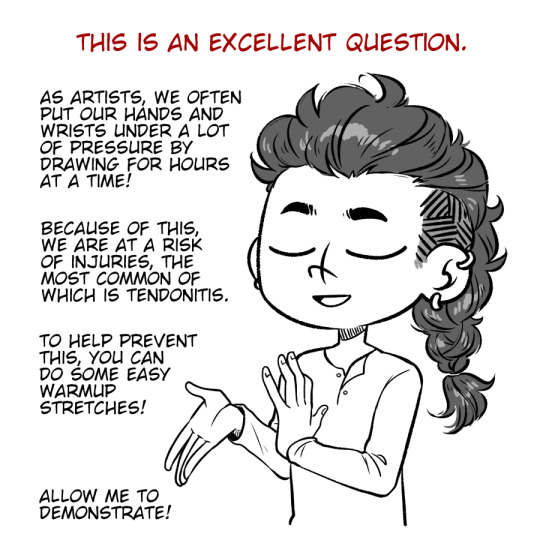

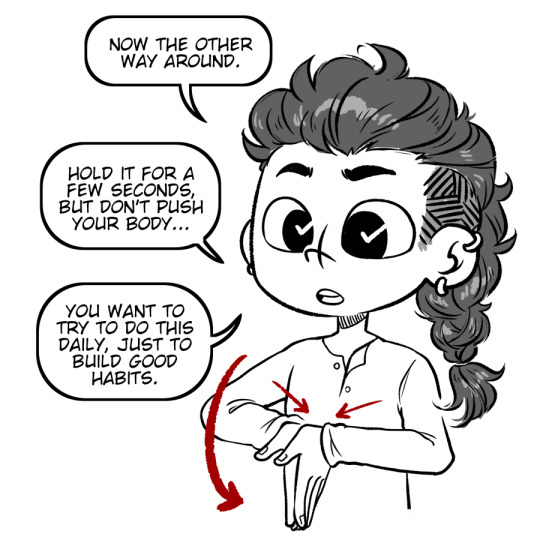
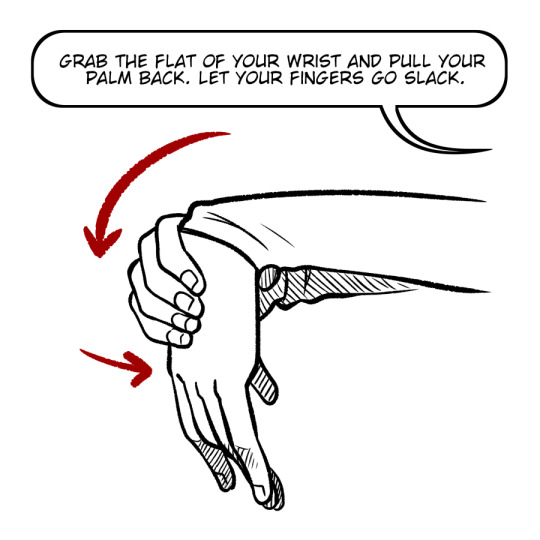

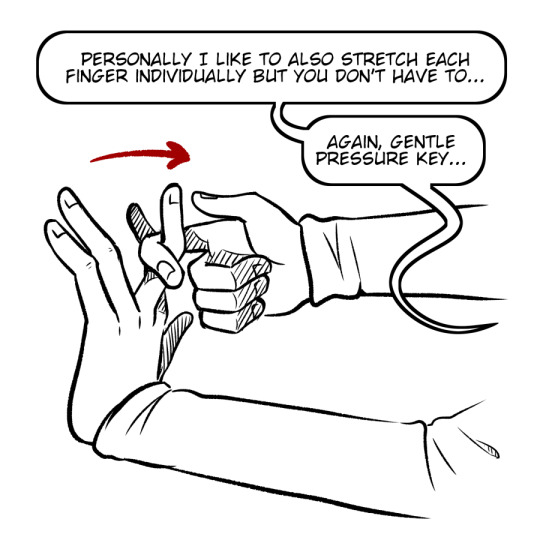

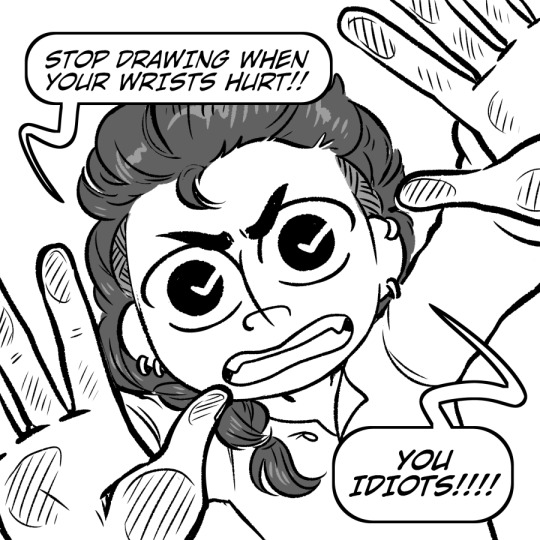
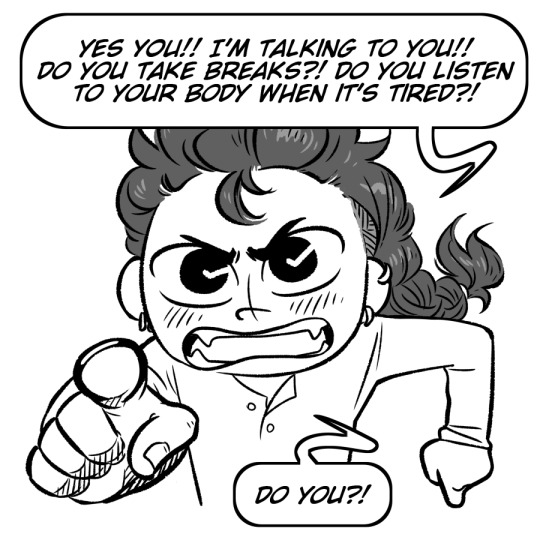
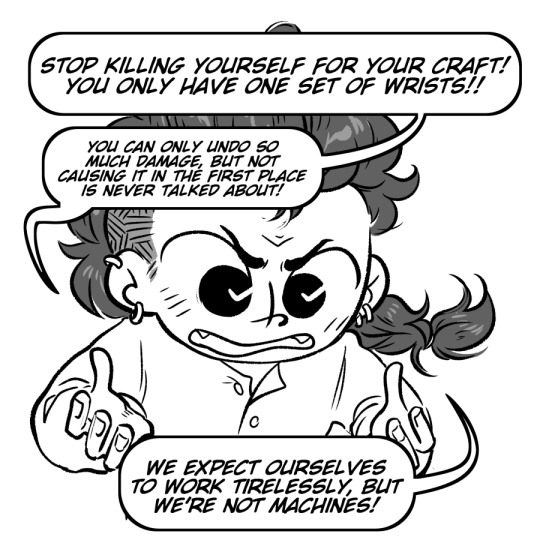

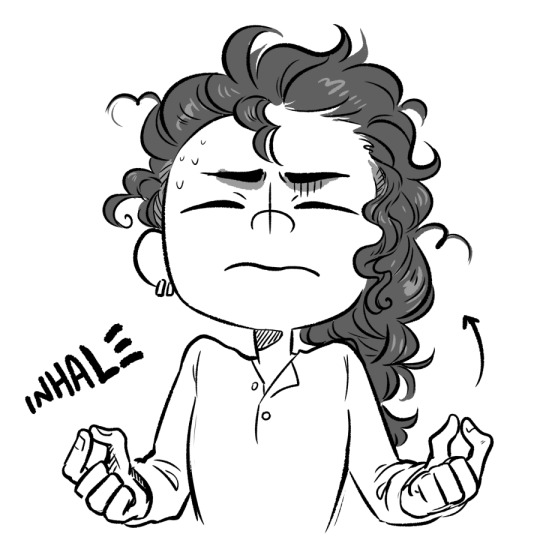

27K notes
·
View notes
Text
On Knowing When You’re Done Revising
In my poetry class, someone asked, “How do you know if a poem is done? Like, how do you know when to stop revising?”
In answer, my professor showed us this:

It was a page in a poetry book that she’d had signed by the author and when she’d handed her copy to him he was like “ahhhhh I can’t stand it” and wrote in the printed copy of the book to change his poem to what he wanted it to be
So I guess the answer is “never.”
7K notes
·
View notes
Text
Publishing 101: The 5 Critical Steps to Getting an Agent and Getting Published

Every year, we’re lucky to have great sponsors for our nonprofit events. Today, Nathan Wilcox of Writers’ Clearinghouse, a NaNoWriMo 2019/2020 sponsor, is here to help you with an in-depth publishing how-to:
So you finished a novel. You’ve spent hundreds of hours writing. You’ve studied writing manuals. You’ve edited until your eyes crossed. You’ve recruited your friends to provide feedback. You’ve completed one of the greatest of all human accomplishments: You are a novelist.
The hard part is done, right? You’ll just send some letters off to agents and sit back and wait for them to come begging. Only it’s most likely not the agents that come calling. It’s their little red gremlin friends bent on destroying your will as an author: rejections.
Rejection is a part of being an author. Even the greatest authors have faced piles of rejections, and unless you’re ridiculously lucky, so will you. Personally, I’ve had 147 rejections across two manuscripts. Rejection is going to happen, but the truth is that it doesn’t matter. What matters is acceptance – you only need one “yes” to make all the “no’s” irrelevant. So rather than worry about rejections, let’s talk about how to get accepted.
Keep reading
294 notes
·
View notes
Text
How to begin a novel

Last year for National Novel Writing Month I trained a neural net called torch-rnn on 10,096 unique ways to begin a novel. It came up with some intriguing possibilities, my personal favorite being “I am forced to write to my neighbors about the beast.” But many of its sentences used made-up words, or had such weird grammar that they were difficult to read, or meandered too erratically. (“The first day of the world was born in the year 1985, in an old side of the world, and the air of the old sky of lemon and waves and berries.”) The neural net was struggling to write more than a few words at a time.
This year, I decided to revisit this dataset with a larger, more-powerful neural net called GPT-2. Unlike most of the neural nets that came earlier, GPT-2 can write entire essays with readable sentences that stay mostly on topic (even if it has a tendency to lose its train of thought or get very weird). I trained the largest size that was easily fine-tunable via GPT-2-simple, the 355M size of GPT-2. Would a more-powerful neural net produce better first lines?

One of the parameters I can tweak when I’m getting a trained neural net to generate text is temperature - this controls whether the neural net chooses the most likely next bit of text as it writes, or whether it’s permitted to use its less-likely predictions. At a default of 0.7, a relatively conservative temperature, the neural net’s first lines not only make grammatical sense, but they even have the rhythm of a novel’s first line. This is DRAMATICALLY better than torch-rnn did.

I am, or was.
At the mid-day meal the sun began to set and the quiet dragged on.
There was once a man who lived for a very long time; perhaps three thousand years, or perhaps a thousand million years, maybe a trillion or so, depending on how the scientists look at it.
He had the heart of a lion, and the fangs of a man-eater.
“I am Eilie, and I am here to kill the world.”
The old woman was sitting on a rock near the sea, smoking a pipe.
I have just been informed, that the debate over the question ‘is it right or wrong to have immortal souls’ has been finally brought to a conclusion.
When I was a boy, I was fond of the story of the pirate god.
He had a strange name, and he was a very big boy indeed.
The purple-haired woman came to the clearing in the plain, and without looking up from her book, said, “It’s too late to be thinking about baby names.”
The village of Pembrokeshire, in the county of Mersey, lies on a wide, happy plain, which, in a few years, was to become known as the “Land of the Endless Mountains.”
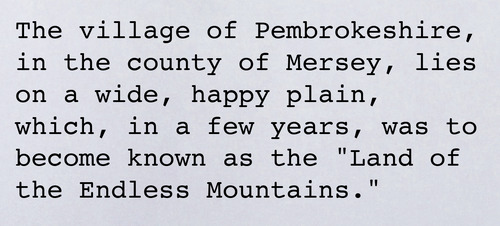
I don’t think the neural net plagiarized any of these? They are so good that I’m suspicious. But others of the neural net’s lines are even weirder, yet in an effective way that opens with an intriguing premise.
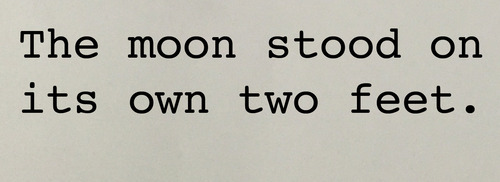
The moon had gone out.
I was playing with my dog, Mark the brown Labrador, and I had forgotten that I was also playing with a dead man.
The black stone was aching from the rain.
The short, dirty, and dirty-looking ship that weighed three tons and was three feet in diameter landed on a desolate and green plain.
How many times have I had the misfortune to die?
The first black dog in the park had been captured alive.
Behold the Sky Rabbits!
In the belly of the great beast that was the bovine Aurore there lived, upon the right hand of the throne, the Empress Penelope; and she had, as it were, a heart of gold.
The moon stood on its own two feet.
The reeking maw of the blood-drunk ship, the enemy’s flagship, was silent and empty.
The first day I met my future self, I was aboard the old dirigible that lay in wait for me on the far side of the moon.
The child of two cats, and a tiger, a clown, a horse, a bird, a ship, and a dragon, stood on either side of the threshold of the Gatehouse, watching the throng of travelers who came in from all around the world, before he had any idea what was going on.

I think it’s probably doing this accidentally, stringing likely words and phrases together without understanding what any of them really mean. It’s not that it’s good at science fiction or magical realism; it’s that it’s trying and failing to predict what would have fit in with the usual human-written stuff. Some of the neural net’s first lines really betray its lack of the understanding of the laws of physics. It really likes to describe the weather, but it doesn’t really understand how weather works. Or other things, really.
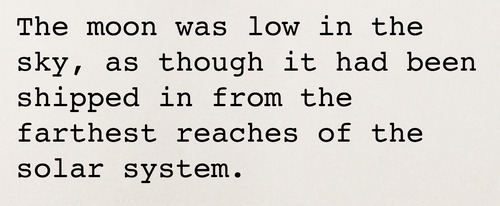
The moon was low in the sky, as though it had been shipped in from the farthest reaches of the solar system.
The first star I saw was a blue one, which became a scarlet one, and then a gold one, and green, and finally a yellow one, which for some years afterwards seemed to be an ebony one, or even a bubbling mass.
The sun rose slowly, like a mighty black cat, and then sank into a state of deep sleep.
The sea of stars was filled with the serenity of a million little birds.
The great blue field was all white, swept away by the blue-gold breeze that blew from the south.
The sky was cold and dark, and the cold wind, if it had not been for the clouds, would have lashed the children to the roof of the house.
The morning sun was shining brightly, but the sky was grey and the clouds aching.
The night that he finally made up his mind to kill the dog, the man was walking home from the store with his wife and child in the back seat.
Arthur the lion had been pretty much extinct for some time, until the time when he was petted by Abernathy the old woman, and her son, Mr. Popp.
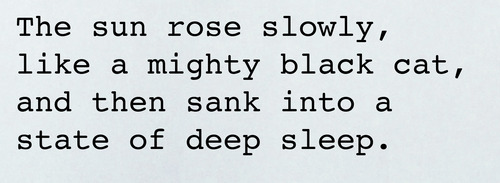
One of the disadvantages of having a neural net that can string together a grammatical sentence is that its sentences now can begin to be terrible in a more-human sense, rather than merely incomprehensible. It ventures into the realm of the awful simile, or the mindnumbingly repetitive, and it makes a decent stab at the 19th century style of bombastic wordiness. I selected the examples above for uncomprehending brilliance but the utter tediousness below is more the norm.

The whites of my eyes shimmered, as if my mind were dancing.
I once went to a party where the dress code was as strict as a chicken coop with no leggings and no boots.
A black cloud drifted by, a mottled mass of hydrogen, a black cloud of hydrogen, with the definite characteristic of being black.
I say I am at sea, because I am standing upon the ocean, and look out across the barren, vast throng of the sea.
It is, of course, a trifling matter in the ordinary course of things, if a certain writer were to write a novel, which is a book of stories, which is a book of characters, wherein every detail of the story is stated, together with a brief description of the theme which it concerns.
There was a boy with blue eyes, with sandy hair and blue eyes that looked at all times like he had been pushed through a million compartments.
The Sun, with its rolling shaft of bright light, the brilliant blue of the distant golden sun, and the red glow of its waning corona, was shining.
The man who was not Jack the Ripper had been promoted four times in the last two years.
Felix the Paw was sitting at the table of his favorite restaurant, the “Bordeaux” in the town of Bordeaux, when his father, Cincinnata, came in to say good-by to the restaurant.
It, sir, gives me the greatest pleasure to hear that the Court be not too long in passing away: but that I may have leisure to prepare a new work for the publication of my friend and colleague, the renowned Epistemology, which is now finished; and in which I shall endeavour to show, that this very point is of the highest importance in the subject of the philosophy which I am about to treat of.
It was a rainy, drizzling day in the summer of 1869 and the people of New York, who had become accustomed to the warm, kissable air of the city, were having another bad one.
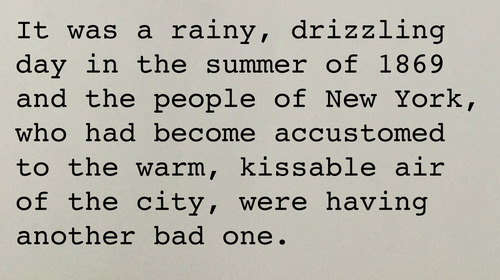
Repetitiveness is also common, especially at this conservative temperature setting. Once the neural net gets itself into a repetitive state, it doesn’t seem to rescue itself - it’s a problem that people have noticed in several versions of this algorithm. (It doesn’t help that I forgot to scrub the “title” that someone submitted to the dataset that consists of the word “sand” repeated 2,000 times)
The sky was blue and the stars were blue and the sun was blue and the water was blue and the clouds were blue and the blue sky was like a piece of glass.
At the end of the world, where the tides burst upon the drowned, there exists a land of dragons, of dragons, which is the land of the dragons.
It’s the end of the world, it’s the end of the world, it’s the end of the world, it’s the end of the world, it’s the end of the world, you’re dead.
There was once a land of sand, and sand, sand sand sand sand sand sand sand sand sand sand sand sand sand sand sand sand sand sand sand sand sand sand sand sand sand sand sand sand sand sand sand sand sand sand sand sand sand sand sand sand sand sand sand sand sand sand sand sand sand sand sand sand sand sand sand sand sand sand sand sand sand sand sand sand sand sand sand sand sand sand sand sand sand sand sand sand sand sand sand sand sand sand sand sand sand sand sand sand sand sand sand sand sand sand sand sand sand sand sand sand sand sand sand sand sand
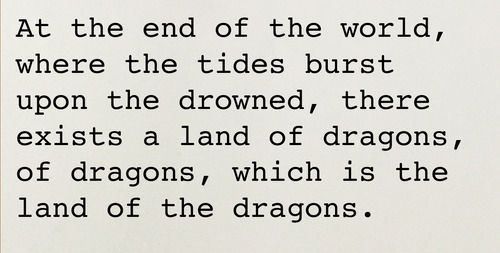
Increasing the temperature of the sampling would help the repetitiveness problem, in theory, letting the neural net venture into more interesting territory. But at a temperature of 1.0 the text tends to venture out of everyday surrealism and into wordy yet distractible incomprehensibility.

The praying mules on the top of the hills sounded the final klaxon, lifting their spiked front hoofs as they crept the last few feet of desert landscape past the crest of the enormous swathe of prehistoric sand.
In the glen of the Loch is a ladder that winds way up through a passage to a ledge with soft, moss-laden environmental standards.
Someone whipped a dead squash gibbet across the room, like some formidable war lord unleashing a heavy hunk of silver at home.
One blue eyed child stood up and cried out: “Douay, saurines, my Uncle – Fanny Pemble the loader!”
Jud - an elderly despot, or queen in emopheles, was sitting across the table from the king, looking very thoughtfully into the perplexions of the proceedings.
Oh, you’re a coward little fool, as if you couldn’t bear to leer at a Prunker or white-clad bodyguard quickly emerging from a shady, storm-damaged area of the city.
Hanging presently in his little bell-bottomed chamber on the landing-house, early in the morning, the iron traveler sat on a broad-blonde sandbricksannel blanket outside the gate of a vast and ancient island.
Long, glowing tongues trailed from your mouth as you listened to what was being said across this kingdom of ours, but growing a little more somber since the week that caused us to proclaim general war.
The night I first met Winnie the Pooh, I had sat in the Tasting-House and heard the Chef unpack the last of the poison upon his quiet dinnertable.
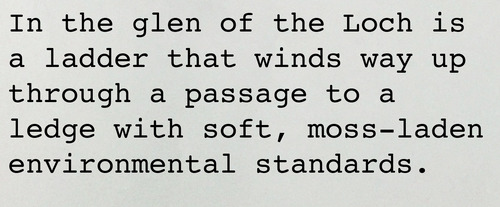
There is, of course, no perfect setting at which the neural net churns out sensible yet non-repetitive first lines. There are just varying shades of general awfulness, interspersed with accidental brilliance.
No matter how much you’re struggling with your novel, at least you can take comfort in the fact that AI is struggling even more.
I generated all the neural net sentences above using a generic “It” as the prompt that the neural net had to build on (it would usually go on to generate another 20-30 sentences at a time). But although the sentences are independent in my training data, GPT-2 is used to large blocks of text that go together. The result is if I prompt it instead with, say, a line from Harry Potter fanfic, the neural net will tend to stick with that vein for a while. To read the results, enter your email here.
My book on AI is out, and, you can now get it any of these several ways! Amazon - Barnes & Noble - Indiebound - Tattered Cover - Powell’s
10K notes
·
View notes

